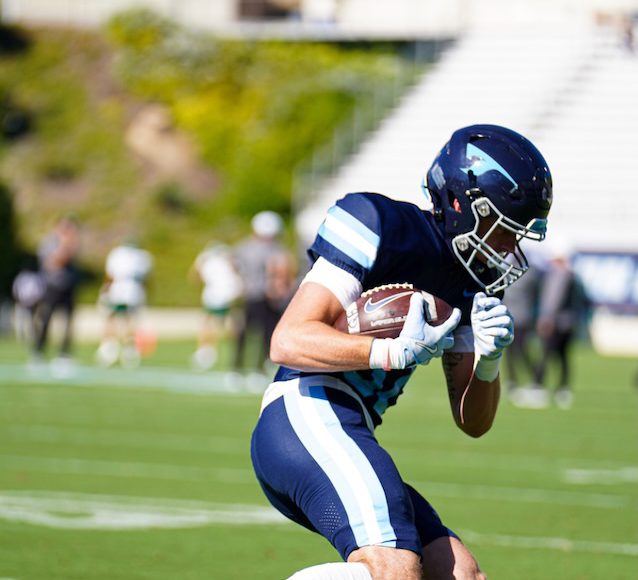
Like sands through the hourglass, so are the days of college eligibility, especially due to the NCAA Division I five-year rule. It is one of the biggest obstacles student-athletes face, and, for some, more challenging than the sport they play itself.
However, change is unfolding as athletes everywhere, such as Los Gatos native Jackson Benjamin, a defensive back for Morehead State University, are seeing their playing time expand into new territories.
“It was like a roller coaster,” Benjamin recalled as he hoped for an additional season, “—and it ended up happening.”
The contentious NCAA Division I five-year rule is simply a clock that gives athletes five years to play four seasons. However, this clock is continuous, meaning that once you fully enroll at any institution, time is ticking. The only way to hit pause is through waivers granted for circumstances such as illness, serious injury, military service or religious missions.
This is where things get messy—and where, as many have heard, Diego Pavia, the quarterback for Vanderbilt University, comes into play. Recently, the athlete has confronted this shortening bomb fuse, altering eligibility restrictions everywhere.
A troubling time
Benjamin’s journey is very similar to Pavia’s, as both began their careers at junior colleges.
The Vanderbilt quarterback initially started at the New Mexico Military Institute, then transferred to New Mexico State University before landing at his most recent team. Trouble started for the athlete after he was denied the ability to participate in the 2025 season, due to his time spent at a junior college.
Benjamin started his career at Foothill College and then transferred to Morehead State, where he was restricted from competing in the 2025 season.
“I didn’t know that it was my last year of eligibility until about four weeks left into the season,” Benjamin said, recalling the shock he received last year. This was related to the formalities that go into compliance rules, an issue that confronts many.
“It’s hard to follow and truly understand what your timeline is, because it is so different for so many different people,” Blake Chase, a wide receiver for the University of San Diego, explained. Although now on separate sides of the country, Chase understands the junior college environment, as he, too, spent time at Foothill.
One more year?
Pavia has been battling the NCAA in court, arguing that the restriction he’s up against violates antitrust laws, as it limits the amount of time junior college athletes can play. He says it stifles competition and the ability to earn money through his name, image and likeness.
Benjamin agrees this is something players now have to consider when embarking on their junior college careers.
‘The future of college athletics is absolute chaos.’
—Blake Chase, USD wide receiver
“I think that there definitely are limitations for guys that don’t take the traditional four-year route,” Benjamin said. “But, I mean, it is also kinda a choice that you are taking.”
In December 2024, Pavia was granted a preliminary injunction that blocked the NCAA’s restriction.
This change was not just granted for Pavia. A temporary waiver was given to all student athletes who initially played in at an institution not affiliated with the NCAA, and whose eligibility would have ended in the 2024-25 season.
Just like that, Benjamin had another year to play the sport he loved.
“That actual moment I found out that it went through, I got texted by one of my coaches,” Benjamin described. “I was in the middle of weight-lifting, so that was kinda a cool experience. Like, I got super excited and ran out of the gym.”
Dillon Whitfield, a wide receiver for the University of Puget Sound, couldn’t be happier for his former Los Gatos High School and Foothill teammate.
“I’m glad Jackson got to benefit from the Diego Pavia case. The waiver should be for many more people who are in the same situation,” Whitfield remarked.
The future frontier
“The future of college athletics is absolute chaos,” Chase said. “Whenever I get asked about college football and what it’s like now… I just say it’s the minor leagues.”
The rapidly evolving eligibility standards are just adding to this madness, as even more cases are popping up, such as the class action lawsuit filed by 10 athletes. A lawsuit this large, and the merits brought on by Pavia’s case completely jeopardize the NCAA eligibility restrictions.
“They kind of opened the flood gates,” Jackson described. “And I’m not sure exactly what’s going to happen, but I think in the next 10 years everything is going to be a lot different than it is currently.”
What is for sure, is that thousands of student-athletes will be affected by whatever happens. And for some who believed the sun was setting on their careers, they might just get another chance to make it big.









